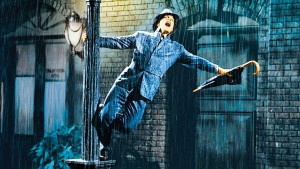Hello, everybody! (Olá a todos!) Let’s see some grammar?
Portuguese, like many other languages, assigns gender – either masculine or feminine – to substantivos (nouns). Masculine nouns are preceded by the definite article “o” – as in o carro (the car), o cachorro (the dog), o prédio (the building) – whereas feminine nouns take the article “a” – like a casa (the house), a porta (the door), a geladeira (the fridge).
The general rule is that nouns ending with “a” are feminine and nouns that end with “o” are masculine:
- Não se esqueça de molhar a planta (Don’t forget to water the plant)
- Minha rua é aquela (My street is that one)
- Deixei minha bolsa em cima da mesa (I left my purse on the table)
- O preço do vinho aumentou de novo (The price of wine went up again)
- Meu bairro é bem seguro (My neighborhood is very safe)
- Encontrei com ele no supermercado (I ran into him at the supermarket)
But since every rule has its exceptions, even though nearly all nouns that end with “a” in Portuguese are feminine, a few masculine nouns may end with the letter “a”:
The exceptions are:
Nouns ending with “á”: o sofá (the couch), o chá (the tea), o guaraná (the guarana), o crachá (the name tag)
Você vai ficar deitado no sofá o dia todo? (Are you going to lie in the couch all day?)
Vou querer um chá de camomila (I’ll have a chamomile tea)

Usar um crachá é obrigatório na minha empresa (Wearing a name tag is mandatory in my company)
Nouns ending with “ema”*: o cinema, o poema (the poem), o problema (the problem), o sistema (the system), o esquema (the scheme), o dilema (the dilemma), o tema (the theme)
- Ele escreveu um poema para mim (He wrote me a poem)
- Não consigo resolver o problema sozinho (I can’t solve the problem by myself)
*usually words of greek origin

Meu namorado e eu sempre vamos ao cinema (My boyfriend and I always go to the movies)
Nouns ending with “oma”: o diploma, o idioma (the language), o sintoma (the symptom), o coma (the comma)
- Tive muito problemas com o idioma no Japão (I had many problems with the language in Japan)
- Quais são os seus sintomas? (What are your symptoms?)

Finalmente tenho um diploma! (I finally have a diploma!)
Nouns ending with “grama”: o programa (the program), o quilograma (the kilogram), o diagrama (the diagram)
- O diagrama está no quadro (The diagram is on the board)
Other exceptions: o planeta (the planet), o mapa (the map), o dia (the day), o clima (the weather), o profeta (the prophet), o pijama (the pyjamas), o tapa (the slap), o drama (the drama)
- Não sei chegar lá sem olhar no mapa (I can’t there without checking a map)
- O dia está lindo hoje! (It’s a beautiful day today)

O clima está chuvoso, mas vou sair mesmo (The weather is rainy but I’m going out anyway)
Tenham um ótimo fim de semana! (Have a great weekend!)









Comments:
Joy:
The English on “…mapa…” is incorrect. Love this email. Joy